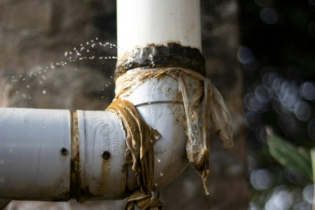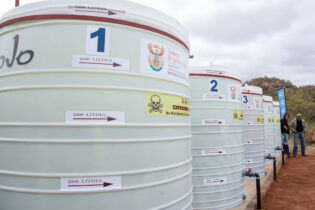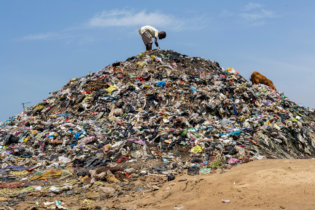Urgent action is necessary to prevent the ‘decay’ of water quality in Gauteng to the levels seen in Carolina, Mpumalanga, according to Thomas Walters, Democratic Alliance (DA) MPL in Gauteng.
Walters said on Wednesday that the DA would call for public hearings through the Gauteng legislature to “investigate and address” the quality of waterways in the province. On Tuesday, North Gauteng High Court Judge Moses Mavundla gave Tunu Agnes Mnisi, acting executive mayor of the Gert Sibande municipality, and municipal manager DV Ngcobo 72 hours to provide the roughly 17 000 citizens of Carolina with potable water. Carolina had been without potable water since mid-January when acid mine water polluted the town dam. On Tuesday, Water and Environmental Affairs Minister Edna Molewa said the water had been declared drinkable. “The North Gauteng (High Court) judgment in the Carolina matter sets a significant precedent in this regard,” Walters said. “The legislature must take the necessary steps to prevent a Carolina-type water crisis in Gauteng.” Municipalities in Gauteng this year collectively gained the top rating for drinking water in South Africa, scoring 98.1% for the province’s Blue Drop certification. It was followed by the Western Cape with 94.2% and KwaZulu-Natal with 92.1%. The Blue Drop programme is a national Department of Water Affairs programme that recognises excellence in the management of drinking water. Mr Walters said in a statement that a City of Johannesburg report on its department of environment and infrastructure services “included results with shocking implications for the long-term environmental health of the metro. Of particular concern was the fact that poor communities lived close to dangerously polluted waterways.” His statement did not include the report. Walters said “similar complaints” existed regarding Ekurhuleni’s Blesbokspruit and Tshwane’s Hennops River. “Municipalities have allowed their water and sanitation infrastructures to decay and maintenance systems to collapse, and environmental law enforcement against polluters is poor,” he said. “Only massive public pressure, expressed through such a public hearing process, will galvanise the necessary maintenance and law enforcement to take place.” He added: “The alternative is for residents to seek recourse through the courts to force municipalities to fulfil one of their basic constitutional responsibilities of providing clean drinking water. The judgment in the Carolina matter sets a significant precedent in this regard.”Last Tuesday night, after Judge Mavundla had delivered his judgment, Democratic Alliance deputy water and environmental affairs spokeswoman Marti Wenger said it was “a travesty” that the people of Carolina had been forced to go to court to force the government to ensure they received drinkable water.
“The very fact that the case had to go to court is demonstrative of a collective failure of water governance,” she said. “Both the Department of Water Affairs and the Chief Albert Luthuli municipality failed in their duties to secure the safe supply of drinking water. In this regard I intend to ask the minister what action she will take against the municipality. “It should not be left to community organisations to take the municipality to court when it fails in its mandate. The national government itself should be laying criminal charges against municipal officials who repeatedly fail to deliver on their statutory water responsibilities.” Ms Molewa said the Department of Water Affairs was working with the municipality to rectify the situation. The department was also investigating four mines implicated in the pollution. Se said the National Environmental Management Act, which encompassed the polluter-pays principle, allowed the department to collect from these mines the funds spent to clean up the town dam. She did not say when this would be done. More than R5m was spent on getting potable water to Carolina. Acid mine water threatens the water supply predominantly in Gauteng, but also in Mpumalanga, the Northern Cape, KwaZulu-Natal, the Free State and Limpopo. Koos Pretorius, director of the Federation for a Sustainable Environment, said other Mpumalanga towns, including the larger Middelburg area, faced similar problems. “I believe a crisis is looming … and I cannot see how the situation will be avoided,” he said. blaines@bdfm.co.za Source: Business Day





